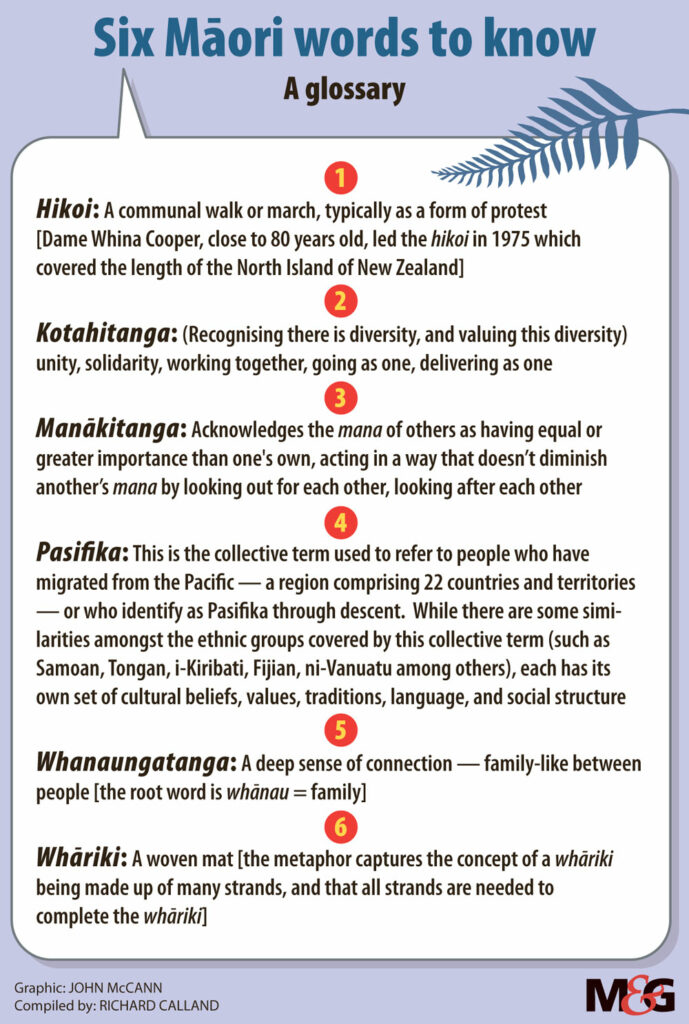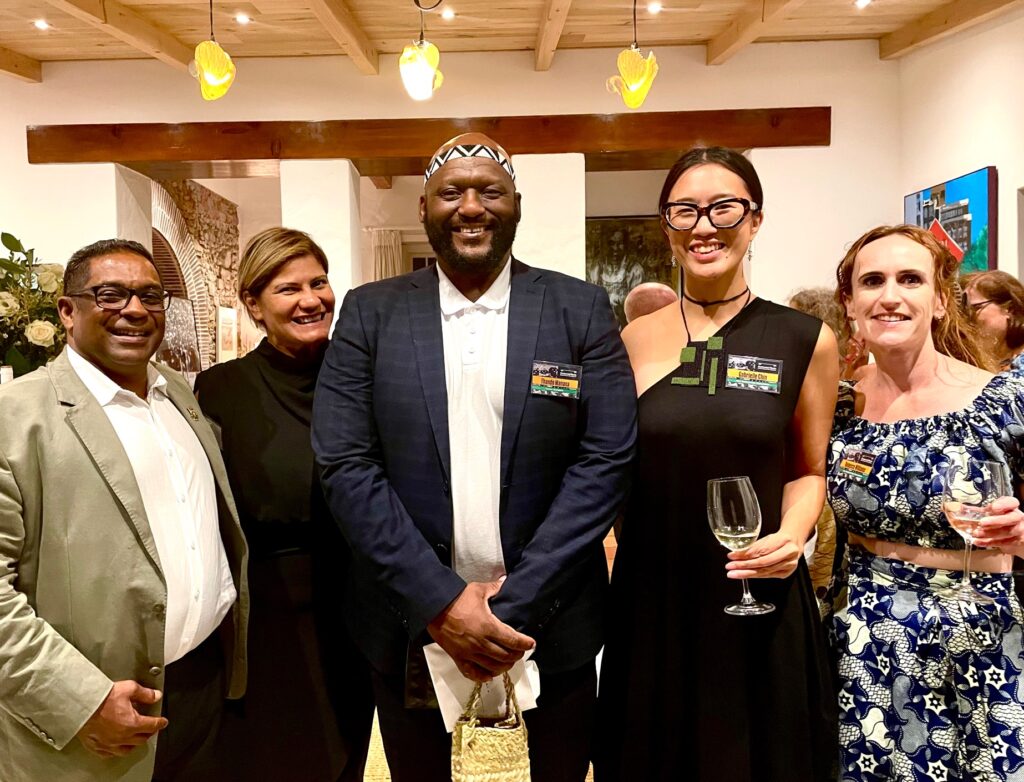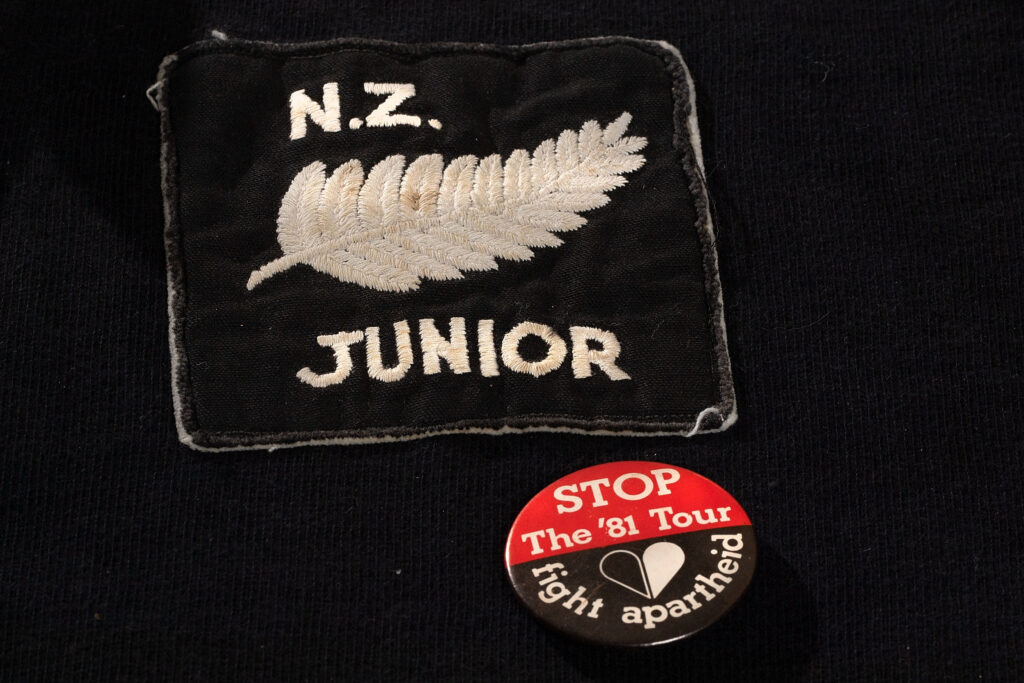Regardless, sport is a part of the geopolitical and diplomatic whāriki. It can be a force for isolation as well as unity.
(Photo by Ross Land/Getty Images)
As Baroness Jane Ewart-Biggs talked to me she moved closer, backing me into a corner of the crowded room — the Union Society committee room, shortly after the close of the debate in which she had spoken. I can’t remember the motion that the house was debating, but I have not forgotten the bright emerald eyes with which she fixed me and the passion with which she spoke about her intention to use sport as a bridge between the Protestant and Catholic communities in Ireland.
Rugby is one of the few things that unites this troubled island, she argued then. Indeed, unlike some of the other main sporting codes in the British Isles, such as football and athletics, rugby is played by a single Irish team that draws from both the Republic of Ireland and Northern Island.
This was in 1985, a year or two after Ewart-Biggs had been given a life peerage for her services to peace-building, and a decade after her husband had been assassinated by the IRA just 12 days into his appointment as British ambassador to Ireland, in July 1976.
I have never forgotten my conversation with Ewart-Biggs; she convinced me there and then of the power of sport as a source of social unity with extraordinary peace-building potential, derived from sport’s capacity for transcending the divisions and conflict of “normal” everyday life.
Out of murderous death, she had summoned the courage to build a pathway to peace, in one of the most complex sectarian and deep-set historical contexts in the world.
This is a topical issue, given the international sanctions against Vladimir Putin’s Russia, which include sporting sanctions: among many other bans, Russian athletes can no longer compete under the flag of the Russian Federation; St Petersburg has been replaced by Paris as the venue for the Uefa Champions League final in May; and Sochi’s Formula 1 race has been scrapped from the schedule.
There is debate, and controversy, over the efficacy of such sporting and cultural boycotts.
“We have seen the Western double standards on full display the most the last few weeks. Fifa and Uefa, which control global and continental football in Europe, respectively, went from hedging about the war to an outright suspension of all Russian national and club teams from its competitions,” said Sean Jacobs, associate professor of international affairs at The New School, and founder of the distinctive online journal Africa is a Country.
The complaint about hypocrisy mirrors the wider debate about the diplomatic response to the invasion of Ukraine in general. As Jacobs points out, “Fifa has rarely acted against rogue states, especially ones who illegally occupy and oppress others such as the US and its various invasions and occupations in the past, India in Kashmir, and Israel over the Palestinians. Israel’s case is one that hits closer to home for European football: Israel is a member of Uefa.”
The notion of “sports diplomacy” has gained currency in recent years, as a particular form of diplomacy, alongside its sibling, “economic diplomacy”. Who better to discuss this than the recently arrived New Zealand High Commissioner to South Africa, Emma Dunlop-Bennett.
She wants to build connections between New Zealand and South Africa on the basis of “people to people links”.
“Relationships sit at the heart of diplomacy. Chunkier policy issues always have a better chance of landing well when there is a strong relationship,” Dunlop-Bennett argues; although, as she adds, “They are not a given; they have to be earned, which comes from our approach of being genuine, leading with integrity and doing what we say we will do.”
This resonates well when it comes from the mouth of a diplomat representing a country led by Jacinda Ardern — one of the few political leaders around who inspires confidence and conveys integrity.
At this point in my discussion with Dunlop-Bennett she begins to drop in some Māori words and phrases with the delicacy and precision of a Sid Going chip over the top, but which leave me floundering (hence the glossary, kindly provided subsequently by Dunlop-Bennett).

She frames New Zealand’s relationship as whanaungatanga — a deep connection based on an enduring relationship.
And then, a concept akin to ubuntu, kotahitanga: “when we go as one” — or, in diplomatic terms, “what would we like to achieve together?”
Which takes us to rugby, paradoxically. How can a rivalry so fierce and physically brutal create unity between the rival nations? As Dunlop-Bennett acknowledges with apparent pride, there is no fiercer rugby rivalry than that between the All Blacks and the Springboks.
According to her — the All Blacks see in the Springboks the same kinds of attributes, of physical and mental strength and resolve — that they cherish in their own ranks, and which have produced some of the greatest rugby matches in history.
The first Test match between the two countries was in 1921 — coincidentally a century later they would battle in their 100th Test; Jordie Barrett outkicking Handré Pollard for a tight 19-17 win in September. The landmark was commemorated last week with an event in Cape Town, hosted by Dunlop-Bennett and attended by three former Springboks, Mannetjies Roux, Wynand Claasen and Thando Manana.
Manana (below, centre) spoke about the painful challenges he had faced as a black player forcing his way into a white-dominated game. And this is where what Dunlop-Bennett (second from left) terms the “political overlay” conjoins with the sporting history. New Zealand has had to contend with its own colonial history — with New Zealand being viewed as the “Britain of the South Seas” rather than as “an independent Pacific nation’.

Last year was also the 40-year mark of the infamous 1981 Springbok tour of New
Zealand, which “really did divide the nation”, says Dunlop-Bennett. “Racial segregation in South Africa was never the question being debated in New Zealand, but rather it forced us to look at ourselves as a nation and ask: as Aotearoa New Zealand, who are we and what do we stand for?”
For generations, New Zealand had prided itself on having the “finest race relations in the world”, but this assertion was very much called into question in the lead up to the 1981 tour (and the 56 days thereof). In the previous years, after an economic downturn, there had been a series of notorious “dawn raids” of Pacific islanders who had “overstayed” their work visas.
Dunlop-Bennett recalls one commentator — Halt All Racist Tours — that framed the protests against the Springbok tour as being “a battle for the soul of the nation”. One test, in Hamilton, was abandoned; the All Black captain resigned; families and communities were split down the middle.
Reflecting now, Dunlop-Bennett feels that on the back of hikoi protesting the loss of Māori land and the dawn raids, among other social issues, this framing feels rather apt. In other words, the 1981 tour was as much about New Zealand as it was about apartheid South Africa. Sport, in this case rugby, became the mirror into which the country was forced to look to see who it really was.
Dunlop-Bennett goes back further in time, to the 1970 All Black tour of South Africa, when
three Māori players and a Samoan player were given special status as “honorary whites”.
She recalls an anecdote from the legendary Bryan Williams, one of the four “honorary whites”, who has recalled how at Newlands there was a special section for black people. He didn’t mind, because that was the corner of the ground where he ran in several tries.

I can imagine the absolute elation of being a Māori and Pasifika selected to play, especially as so many great players up to this point had been denied. To be an All Black as well as to play against the Springboks. That was huge”, says Dunlop-Bennett.
“That said — and cognisant that 50 years have passed — the whole ‘honorary white’ staggers me. I can’t imagine being appointed Aotearoa New Zealand’s high commissioner to South Africa on the basis that I take up this position as an honorary white.”
If anything, being a diplomat of Māori and Samoan heritage is something that is celebrated by Ardern’s government. So in a sense, she believes, that debate — that “battle for the soul of the nation” and the critical look at New Zealand’s own race relations — helped pave the way for Dunlop-Bennett to represent Aotearoa New Zealand as a Māori Samoan diplomat.
So, if you look closely, through this history of independence and the subsequent evolution in race relations and social values as well as political change, South Africa and New Zealand have even more common ground than a hundred years of titanic battles on the rugby field — a rivalry that will be renewed later this year when the All Blacks tour.
This sporting history is an integral part of a common whāriki: a woven mat.
Like Ewart-Biggs forty years ago, Dunlop-Bennett is, in very different circumstances, but with similar levels of intentionality, eager to deploy the soft power of sport for good diplomatic and social purpose.
There are some people who believe that sporting isolation had as great an effect as the economic sanctions against the apartheid state, which finally gathered momentum and real teeth after the fall of the Berlin Wall in 1989, when Western powers began to release South Africa from the grip of their Cold War paradigm to give more whole-hearted support for the anti-apartheid movement.
With Putin’s Russia it is far too early to be able to see what, if anything, will work in terms of applying pressure. Regardless, sport is a part of the geopolitical and diplomatic whāriki. It can be a force for isolation as well as unity.